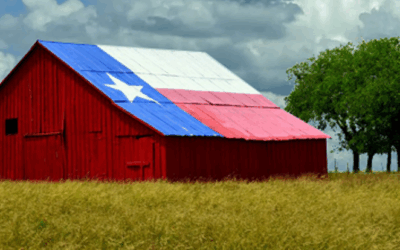Resources for Mental Health and COVID-19
In light of the COVID-19 epidemic, the Hogg Foundation recognizes that people have an urgent need for mental health information at their fingertips. To meet this need, we have assembled this list of resources for both mental health and COVID-19.
Inclusion in this listing should not be considered an endorsement of the organization and the services it provides.
We are currently not accepting unsolicited resource submissions. Resources are chosen internally based on the recommendations of Hogg staff.
GENERAL RESOURCES
- Alcohol Help. Alcohol abuse has plagued billions of individuals. Also known as an alcohol use disorder or alcohol addiction, alcoholism. This site offers alcoholism resources and treatment.
- Clubhouse International. Clubhouses are communities that offer persons in recovery a structured environment in which work, play and kinship can coexist. This site offers a directory of clubhouses around the U.S.
- The Connection Center. The center is a peer-run, peer-led program at the San Antonio Clubhouse that provides individual and group support, as well as, one-on-one assistance, Emotional Wellness Workshops, a Peer Specialist Cafe, a COVID Support Cafe, and a WRAP Cafe.
- Coping With Coronavirus: Managing Stress, Fear, and Anxiety. The director of the National Institute of Mental Health offers some advice on coping with coronavirus anxiety.
- Disability Rights Texas. Disability Rights Texas is the entity designated to protect, promote and advocate for individuals with disabilities in Texas. If you are a person with a disability and you are experiencing a legal problem or are having difficulty obtaining disability services, call their intake line.
- Find a Therapist. Psychology Today offers a directory of mental health practitioners
- Mental Health and COVID-19 – Information and Resources. Mental Health America offers a comprehensive list of mental health resources related to COVID-19.
- Mental Health Match. Use their matching tool to find a licensed therapist you can trust and connect with. To help Texans during the pandemic, over 50 therapists are partnering with Mental Health Match to offer a free session to 100 people.
- Mental Health Screening Tools. Mental Health America offers a variety of screening tools for mental health conditions.
- NAMI Texas. NAMI Texas has free online programs. Support and education for people living with a mental health condition and their family and friends.
- Online Support Groups. The Depression and Bipolar Support Alliance offers online support groups for people living with depression and bipolar disorder.
- Phoenix House Texas. Phoenix House has provided addiction treatment and prevention services in Texas since 1995. Each year, they help thousands of men, women, and adolescents overcome drug and alcohol addiction and find recovery.
- PsychHub. PsychHub has put a list together of black mental health resources. Resources to help Black people and other people of color care for their mental health through the trauma of racism.
- RehabSpot. Although the COVID-19 pandemic has forced most of the country into lockdown, rehab centers are still open. If you or your loved one struggles with addiction, it is possible to begin recovery today.
- Resources and Tools for Addressing Coronavirus (COVID-19). The National Council for Behavioral Health is curating the latest news, updates and resources related to COVID-19.
- Social Support: Getting And Staying Connected. Mental Health America offers tips on strengthening social connections in your life.
- Social Worker Finder. The National Association of Social Workers operates a register of clinical social workers.
- Statewide COVID-19 Mental Health Support Line. The Texas Health and Human Services Commission has launched a 24/7 statewide mental health support line to help Texans experiencing anxiety, stress or emotional challenges due to the COVID-19 pandemic. Call 833-986-1919.
- Texas’ Mobile Vaccination Plan. As part of Texas’ mobile vaccination plan, Groups of at least five people can schedule a mobile clinic to come to a house, a park, a place of business, or an apartment. To schedule a clinic to come to your location, call 844-90-TEXAS and select option three.
- Texas Psychological Association. Texas Psychological Association has started an initiative called “TPA Pro Bono Project: COVID-19.” The initiative provides up to two hours of free mental health services for qualifying Texans. For more information email probono@texaspsyc.org.
- Virtual Recovery Resources. With social distancing self-isolation needed to contain the spread of COVID-19, social connectedness to maintain recovery is vitally important. The Substance Abuse and Mental Health Services Administration offers this list of virtual resources to support individuals in recovery from mental health and substance use disorders.
- Warmlines. A warmline is a peer-run listening line staffed by people in recovery. This site offers a directory of warmlines around the U.S.
FOR CHILDREN AND YOUTH
- Child and Adolescent Psychiatrist Finder. The American Academy of Child and Adolescent Psychiatry offers this online research tool for parents and other adults who are seeking psychiatric care for their children.
- Child Mind Institute. The Child Mind Institute is an independent, national nonprofit dedicated to transforming the lives of children and families struggling with mental health conditions.
- Clarity Child Guidance Center. Clarity has a COVID-19 specific webpage, and also an educator’s page. There are over 250 videos and articles on children’s mental health, parenting, teaching, military kids and families, etc.
- Hand to Hold. Provides social and emotional support for families who are experiencing a NICU stay. Services are free (peer mentor matching, in-hospital rounding, and counseling).
- Mental Health Screening Tool for Youth. Provided by Mental Health America.
- National Child Traumatic Stress Network. The National Child Traumatic Stress Network is dedicated to improving access to services for traumatized children, their families and communities.
- Talking to Kids About the Coronavirus. This blog post by Child Mind Institute offers tips for parents on helping kids cope with coronavirus anxiety. Also available in Spanish.
FOR OLDER ADULTS
- Family Eldercare. Family Eldercare is a nonprofit serving Central Texas that works to ensure that older adults and adults with disabilities receive the care they need to thrive in their communities. This site includes resources for older adults on COVID-19.
- Georgetown University. This resource shares how to understand depression among aging Americans, including the factors that complicate diagnosis and how to recognize and respond to depression among older adults.
- National Council on Aging. The National Council on Aging is dedicated to improving the health and economic well-being of older adults. This site includes resources for older adults on COVID-19.
- National Hispanic and Latino MHTTC. Mental Health Issues among Older Hispanic and Latino Adults in the United States is a fact sheet based on the webinar; Older Latinos in the U.S.: Mental Health Issues provided by Bernardo Ng, MD.
- Social Distancing: Apps for Seniors. This resource provides practical apps for seniors (tech-savvy or not), along with setup assistance.With the recent stay-at-home orders issued, there have been many requests for information on how to help seniors with communication, grocery delivery, home care and, health monitoring.
FOR CAREGIVERS
- Caregiver Action Network. Caregiver Action Network is a family caregiver organization for the more than 90 million Americans who care for loved ones with chronic conditions, disabilities, disease, or age-related conditions.
- National Alliance for Caregiving. National Alliance for Caregiving is a 501(c)(3) nonprofit coalition that advances research, advocacy, and innovation for caregivers and those in their care.
- Resources for Caregivers. Mental Health America provides a listing of resources for caregivers.
FOR IMMEDIATE RESPONSE
- Crisis Text Line. Text MHA to 741741 and you’ll be connected to a trained Crisis Counselor. Crisis Text Line provides free, text-based support 24/7.
- Disaster Distress Helpline. Call 1-800-985-5990 or text TalkWithUs to 66746. The Disaster Distress Helpline provides crisis counseling and support for anyone in the U.S. experiencing distress related to natural or human-caused disasters, including public health emergencies.
- Dial 2-1-1. A service of the United Way. Provides help with finding food, paying for housing bills, accessing free childcare, or other essential services.
- Trans Lifeline. Trans Lifeline’s Hotline is a peer support service run by trans people, for trans and questioning callers. Dial 877-565-8860 for U.S. and 877-330-6366 for Canada.
- The Trevor Project. A national 24-hour, toll free confidential suicide hotline for LGBTQ youth. Call 1-866-488-7386 or text START to 678678.
FOR HEALTHCARE WORKERS
- Austin Trauma Therapy Center. Are providing pro-bono sessions to COVID19 first responders and front line workers. We feel it is important to do all we can during this time to keep each other safe and healthy.
- Language Equity Guide. Advancing health equity through sharing of information and resources for health professionals and other service providers to learn more about culturally and linguistically appropriate services.
- Moral Injury Guide. This guide to moral injury during COVID-19 has been developed as a practical resource for healthcare workers and organizations to better understand the range of moral emotions arising from the COVID-19 pandemic.
- Project Parachute. Project Parachute provides free telehealth psychotherapy to COVID-19 frontline medical workers and their families.
- Q&A on the Federal Stimulus Package. The National Council for Behavioral Health produced this video town hall to answer questions about the $2 trillion federal CARES Act, focusing on opportunities for community behavioral health organizations.
If you have a resource you would like listed or feedback on those already included, please email hogg-communications@austin.utexas.edu. Inclusion in this listing is not guaranteed. Resources are selected based on the reputation of the organization/provider, the quality of the resource, and its relevance to the mission of the Hogg Foundation.
COVID-19 Blogs and Resources
The Hogg Foundation and Partners Have Awarded $6.5 Million in Grants to Support Well-being in Rural and Rural Border Communities
The Hogg Foundation, along with two partner foundations, has awarded $6.5 million in grant funding over five years to 11 organizations to improve mental health, resilience, and well-being in rural and rural border communities. The Strengthening the Mental Health of Rural and Rural Border Communities initiative will build on community strengths and foster community-driven solutions to create, support, celebrate, and promote mental well-being.
Faith as a Mental Health Partner
Today’s episode explores what becomes possible when that trust is paired with intentional partnership across faith, community, and mental health systems. Our guest is the Reverend Dr. Daryl Horton of Mount Zion Baptist Church in East Austin.
Arts and Humanities Research Grants for Early Career Faculty
This initiative’s goal is to produce and publish research findings of scholarly works investigating the interface of mental health, well-being, and the arts and humanities.



